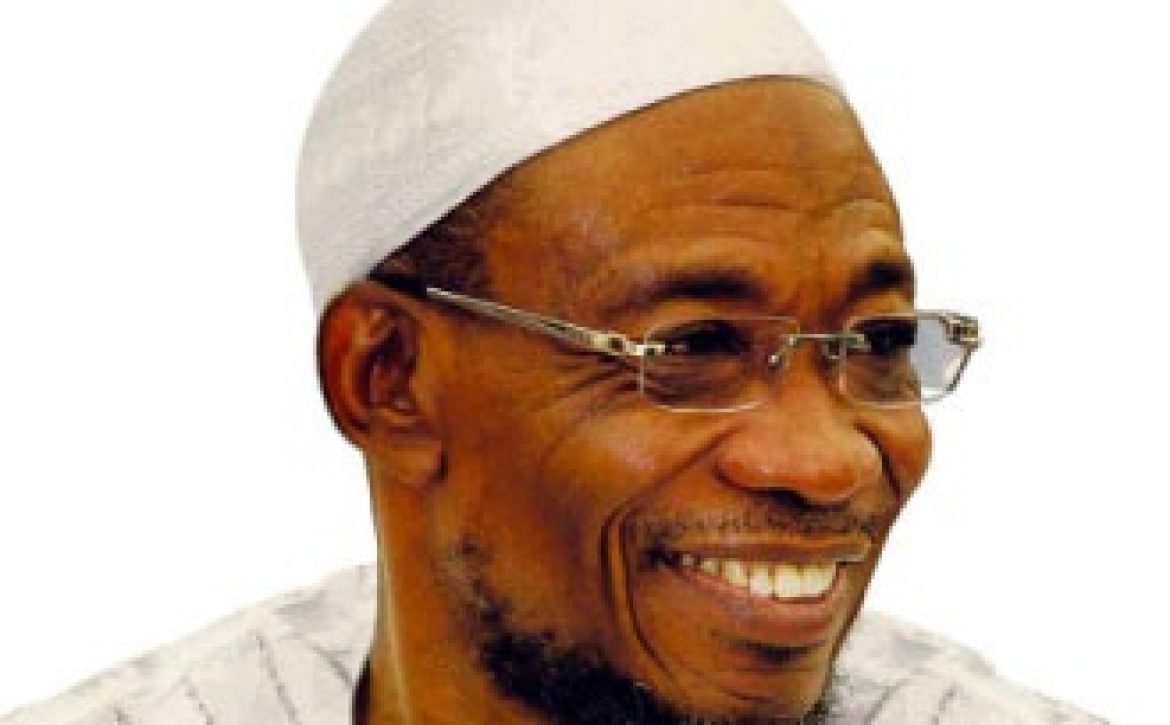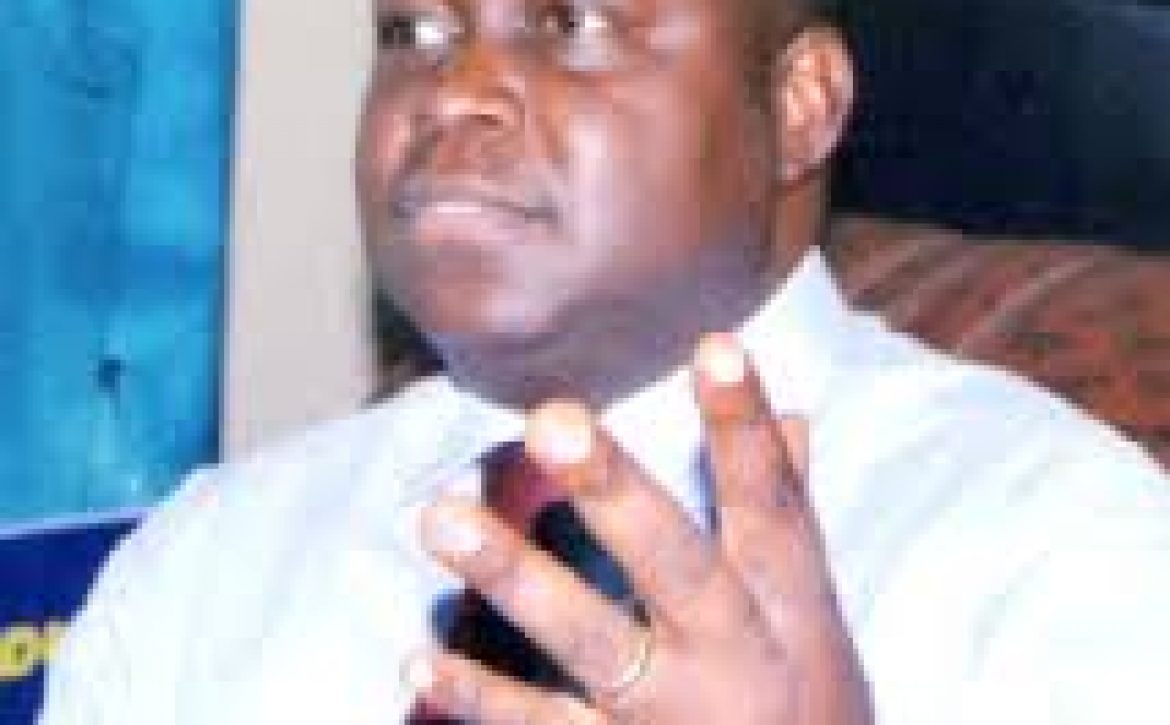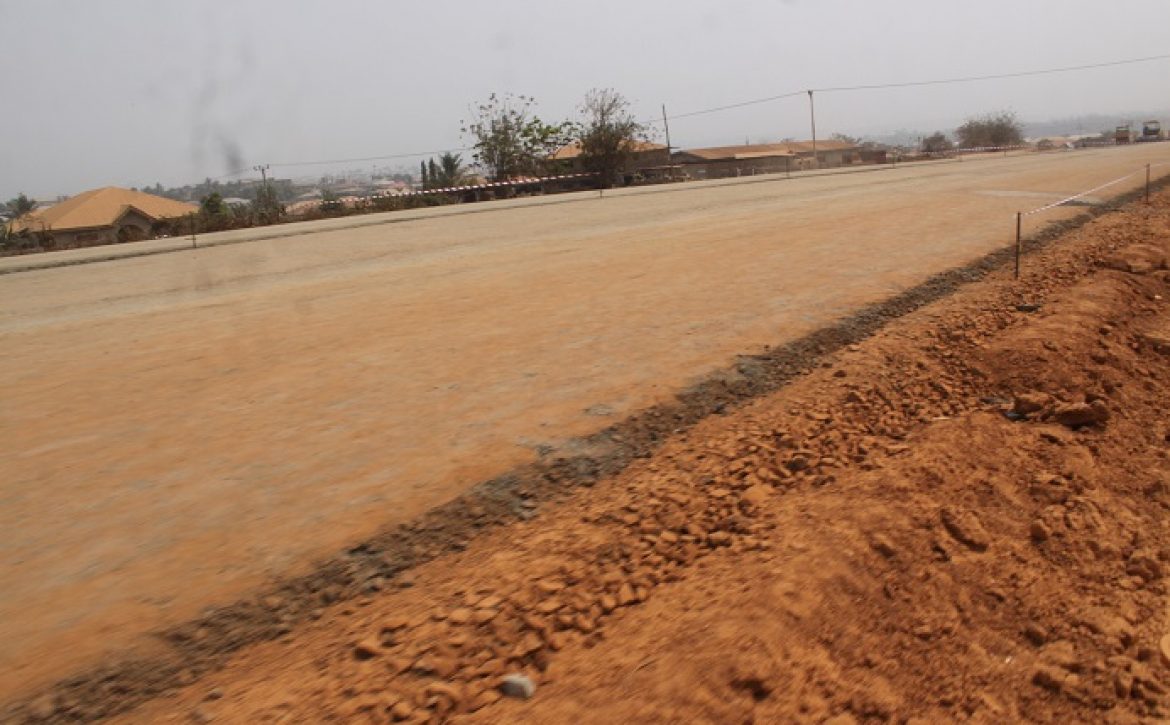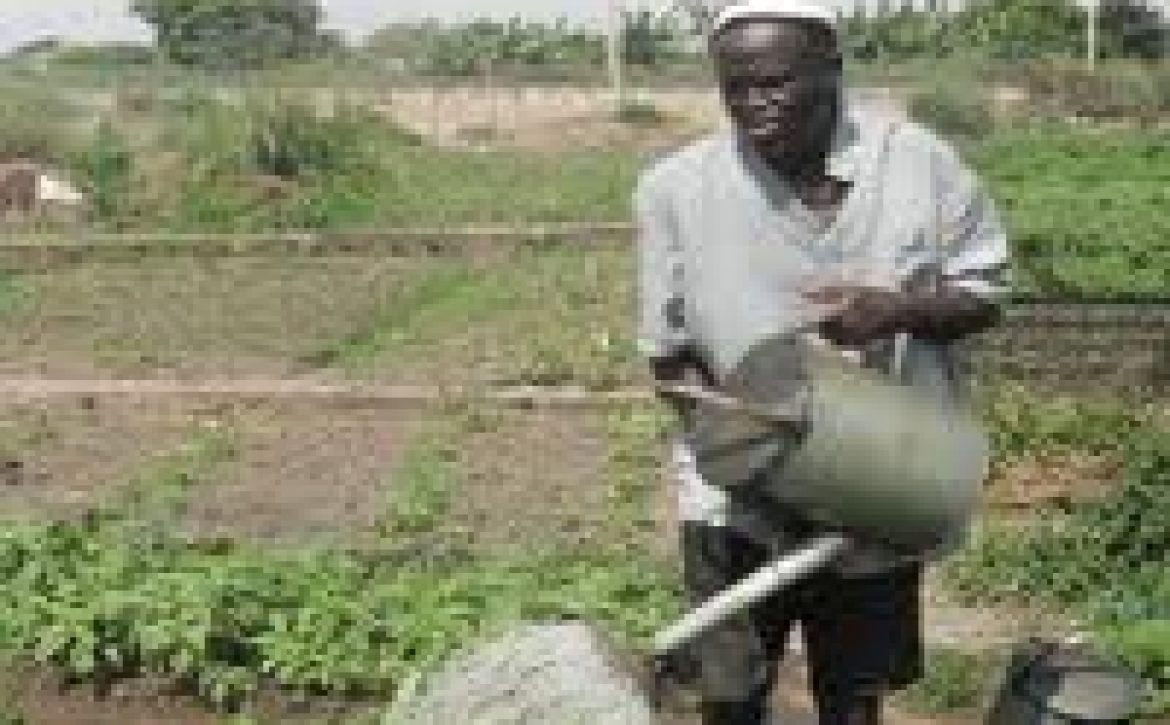 The Osun State Government has urged the Standards Organisation of Nigeria to increase the tempo of its crusade against fake and substandard products in the market.
The Osun State Government has urged the Standards Organisation of Nigeria to increase the tempo of its crusade against fake and substandard products in the market.
The Deputy Governor of the state, Mrs. Titi Laoye-Tomori, said this in Osogbo on Tuesday at the presentation of the Nigerian Industrial Standard certificate to the management of the Osun State Investment Company Limited, producers of Essence table water, by the SON.
Laoye-Tomori said the incidence of fake and substandard products should be tackled with a renewed zeal in order to safeguard the lives of the people.
She reaffirmed the commitment of the Governor Rauf Aregbesola’s administration to making the state the economic hub of Nigeria.
The deputy governor explained that the government would transform Osun from its present civil service status to a viable industrial state through the establishment of companies to produce products that conformed to the standards set by the SON.
Laoye-Tomori said, “The best way to make Nigerian goods compete favourably with goods from other parts of the world is by ridding the nation of fake and sub-standard products.
“We are urging the management and staff of the SON to double their efforts in promoting quality. Producers and importers of fake and sub-standard products should be arrested, prosecuted and punished according to the provisions of the law.”
The Director-General, SON, Dr. Joseph Odumodu, who was represented by the head of the organisation in Osun State, Mr. Dele Ayeni, said the presentation of the NIS certificate to OSICOL signified that Essence table water had been tested and certified by the SON and found suitable for consumption by Nigerians.
The Managing Director, OSICOL, Mr. Bola Oyebamiji, commended the efforts of the state government towards the resuscitation of the company.
He said that the company was in a bad shape when the current administration assumed office in 2010, adding that its turnaround had made it to emerge as a viable contributor to the state’s internally generated revenue.
INFOMISTER
Category: Politics
HE, who comes to governance in Nigeria and wishes to be on the good side of history, must do so with a good dose of creative ingenuity mixed with the power of vision. He must come with candour laced with uncommon courage to dare where angels feared to tread.
And to leave impressionable imprints on the sands of time one must be propelled by policies and programmes that are people-oriented, pragmatic and purposeful as Ogbeni Rauf Aregbesola has done since November, 2010.
The factors that fuel such feats come from an inner nudge to do one’s best and let history be the ultimate judge.
Driven by the will to win against seemingly insurmountable odds, staked high against his frail figure, Ogbeni Rauf Argebesola came into office as Osun State governor eminently qualified with a wealth of experience and determination to make the desired change.
For instance, as commissioner for Works in Lagos State, the roads and bridges constructed during his tenure remain enduring legacies till this day. These as well as the solid infrastructure the admirable administration of Asiwaju Bola Ahmed Tinubu laid formed the foundation built upon by the current Governor Babatunde Raji Fashola-led administration.
Mounting the saddle as a critical thinker, Aregbesola saw the need to reposition Osun within the constitutional framework of fiscal federalism. So came: ‘The State of Osun,’ complete with its anthem and logo and the Omoluabi as the driving mantra for morality and responsibility in governance as well as a means for the citizens to have a sense of self-identity. Though back then lesser minds tried, vainly to rouse a rabble, they were soon reminded that before him Alhaji Lateef Jakande did the same in Lagos State.
If Shehu Shagari as the then president did not bath an eyelid why should anyone now? And come to think of it-if we truly want to imbibe the doctrines of presidential democracy as the United States which we claim to emulate then every state needs such a distinct identity. Not just for its name sake but also to imbue in the citizens self pride in what rightly belongs to them, rather than being seen as a mere appendage to an overlord of a federal government.
That singular re-branding of Osun State was a right signal for the ground-breaking and epoch-making achievements soon to be unfolded from the fecund mind of the man fondly called Ogbeni Aregbesola. He knew from the outset that he needed to assemble a team of top technocrats to drive his vision which took some thorough thinking. It was that team that came up with the now hailed Six-Point Integral Action Plan.
And aware that no meaningful progress could be made in the absence of peace, communal tranquility and progress have reigned supreme in the state since he came on board in line with the sixth item on the Six-Point Integral Action Plan. At the inception of the administration, one major step taken in the line of enhancing justice and facilitating the judicial process was the institution of the Peace and Reconciliation Panel.
That formed the platform for victims of “various acts of oppressive threats, intimidation and tyranny” to table their plights. The intent of this, as defined and demonstrated by the administration, was not to punish, witch-hunt or black-list anyone, but to reconcile all opposing parties in every dispute and entrench peace in the true spirit of Omoluabi.”
Before then there were series of communal conflicts arising from chieftaincy disputes and/or land boundary disagreements. It would be recalled that the erstwhile PDP-led administration in the state put in place forceful enthronement of royal/traditional fathers in many communities where such stools should ordinarily be declared vacant. But these have since been amicably resolved. The Aregbesola-led administration pacified the aggrieved parties; letting them see the need for peaceful resolution rather than taking the laws into their hands.
One other area that deserves commendation is that of reducing to the barest minimum the culture of wanton waste that characterized local government administration in the state. It was the practice during the years of immediate past regime for party chieftains at the community level to grace the premises of local government council secretariats all over the state. That was especially on pay-days to collect unmerited salaries. The consequences were grave as the councils were unable to achieve or execute impact-making solid infrastructure or put in place capital projects for the benefit of their people.
VANGUARD
 The Osun Government has disbursed over N753 million as loans to farmers in the state in the last one year.
The Osun Government has disbursed over N753 million as loans to farmers in the state in the last one year.
The Commissioner for Commerce, Industries, Co-operatives and Empowerment, Mr Ismail Alagbada, made the disclosure while defending his ministry’s 2014 budget today in Osogbo.
Alagbada had appeared before the state House of Assembly’s Committee on Finance and Appropriation.
The commissioner further said that the Bank of Industry was also collaborating with the state government in giving loans to the farmers.
He said 77 farmers’ co-operative societies had benefited from the loans under the Quick Impact Intervention Programme of the state government.
“The loans were disbursed to farmers in the bid to boost food production in the state,’’ the commissioner said.
He said also that the ministry had so far been able to recover N88 million out of the amount disbursed.
The commissioner however said the ministry was working assiduously to recover the outstanding N665 million before granting further loans to farmers from the 2014 budget.
The Speaker of the assembly, Mr Najeem Salaam, in his remarks urged the ministry to look inwards so as to improve its internally-generated revenue.
NIGERIAPOLITICS
Global leaders met in London on 22 January to discuss how school meal programmes can improve educational outcomes and boost agricultural economies.
The meeting was co-hosted by the All Party Parliamentary Group on Agriculture & Food for Development and the Partnership for Child Development (PCD) from Imperial College London, which is working with governments to build the evidence base and provide technical assistance for the development of effective and sustainable home grown school feeding (HGSF) programmes.
HGSF refers to school feeding programmes which procure their food from local smallholder farmers thereby supporting local rather than foreign markets.
In 2013, up to $75billion dollars was invested by the governments of 169 countries into school feeding programmes. It is estimated that for every $1 spent feeding school children, $3 are generated for the local economy.
Keynote speaker Rauf Aregbesola, Governor of Osun state in Nigeria, reported on the success of his state’s school meals programme, known as O’Meals, which feeds over 250,000 children every school day. The O’Meals programme provides employment to over 3,000 women and purchases food from over 1000 local farmers.
The experience of Osun tallies with that of governments from across the globe, the World Bank’s Professor Donald Bundy said. He noted that analysis from the influential book, ‘Rethinking School Feeding’that he co-authored in 2009, had identified that countries were increasingly turning to school feeding programmes as a form of social safety net for their poorest communities. In Europe, in response to the recent recession, countries such as Spain, Portugal, France and the UK had implemented school feeding programmes as means to protect their most vulnerable members of society.
This growth in school meal coverage provides an opportunity for local agricultural economies, Professor Bundy said. “School feeding programmes provide a structured demand for agricultural produce and can, when implemented correctly, encourage wider economic development. Even crisis hit countries such as Cote D’Ivoire, Madagascar, Mali and Sudan are shifting to nationally run programmes which procure their food from local smallholder farmers.”
Speaking on behalf of the African Union’s New Partnership for Africa’s Development, Boitshepo Giyose agreed. “We’re seeing more and more sub-Saharan Africa countries adopting HGSF but they still need support to achieve this. International partners have a vital role to play in promoting cost-effective and sustainable programmes.”
Speaking at the event, PCD’s Executive Director, Dr Lesley Drakesaid: “Research shows that when properly designed, HGSF programmes can act as a win-win for both schoolchildren and smallholder farmers alike.
“For integrated school feeding programmes to succeed like they have in Osun, governments and development partners alike need to integrate HGSF into their policies, strategies and plans for agriculture and for education.”
IMPERIAL COLLEGE LONDON

The Punch editorial of Tuesday, January 21, 2014 titled “Aregbesola’s misguided church project” in which the newspaper, once again, excoriated the governor of the State of Osun for paying attention to the Christian community in his state by creating not only the enabling environment for different religious faiths, but also bringing that environment to modernity should not have been unexpected by keen observers of The Punch entanglement with Aregbesola. What would have been surprising is if the newspaper, which by now prefers to draw its ink from the well of the conservative political elements in the southwest geo-political zone on anything that has to do with Governor Aregbesola, who is probably the strongest link in the region’s chain in progressive governance. The Punch has now made the criticism of Governor Rauf Aregbesola one of its fundamental objectives and directive principle of its organizational policy. And that is fine and dandy.
The Punch editorial left a sour taste in the mouth not because it has a different view from how the governor conducts the affairs his state, but because its editorial was badly disjointed as the newspaper struggled to marshal its points. And just when you thought that it had advanced an argument to buttress a point, the editorial would turn around to make another argument that simply nullified its earlier point. The editorial was akin to a man who was dumped in a big, dark hall blind-folded, and then instructed to walk to the other end of the hall. He would without doubt walk helter-skelter, hitting his head and limbs on avoidable concrete structures and injuring himself badly in the process. The newspaper injured itself with this editorial. It left readers more confused than enlightened.
To be sure, the editorial can be distilled into two distinctive substances: the first shows the newspaper’s anger in what it considers a violation of the separation between religion and state in the constitution by Governor Aregbesola, while the other is what it beliefs is the inability of the governor to bring about socio-economic development to the State of Osun. The newspaper’s assertion that “the Osun State Government had paid N51million compensation to farmers on a large expanse of land where the state is building an interdenominational worship arena” and having done this Governor Aregbesola “will now go ahead to spend Osun’s public funds on mosques, shrines, kingdom halls, chapels for Mormons, gardens for Hindus….” The above quotes would have been unnecessary and quite redundant if the newspaper had paid attention to the key and operative word in its own editorial which is “interdenominational.” Why The Punch thinks this word is unimportant, it seems to me, is a disingenuous attempt to give the dog a bad name in preparation for its guillotine.
The allusion that the “1999 Constitution clearly forbids the promotion of any faith or faiths as state religion” is nothing but an illusion. Although the 1999 Constitution may have forbidden the establishment of any religion by the State, but who does not know that Christianity and Islam have been inadvertently recognized and promoted by the Nigerian nation—in exclusion of other religions that are outside of these two faiths such as Hindus and the Maharaji faiths that The Punch, admits exists in the polity. What’s more? The fact that the Nigerian state as a whole has been knee-deep in religiosity as an important component of how state affairs are conducted should not have been lost on The Punch. A nation and her populace that doesn’t see anything wrong in expending public funds to sponsor its citizens on religious pilgrimages to the spiritual headquarters of the Christian and Islamic faiths can hardly be seen as an embodiment of the separation of church and state as The Punch would have us believe. Why the newspaper has not seen this as an aberration is beyond believe. Judging from the way the newspaper came very hard on an initiative that not only enhances the spiritual values of Nigerians in general, and Osun indigenes in particular, aside from the tremendous economic benefit, wealth creation and other multiplier effects, The Punch probably thinks it was no big deal or it did not give a damn when President Goodluck Jonathan, who represents every Nigerian of every legitimate religious persuasions, knelt before the General Overseer of the Redeemed Christian Church. The newspaper apparently does not believe that a Nigerian of Maharaji faith, for instance, should feel slighted and his religion insulted, that his president had actually promoted the Redeemed brand of Christianity over and above his faith, in clear violation of the letters and the spirit of the constitution.
The Punch also posited that Ogbeni Rauf Aregbesola displayed “a shocking lack of understanding of what constitute the core functions of government” and that the governor of the State of Osun erred in that “while previous governments in Osun have sought to expand farmlands for production and encourage farmers, Osun State in 2014 is acquiring farmland to build an interdenominational centre.” Nothing can be farther from the truth. Since the newspaper would rather not be bothered to expatiate and educate us on what constitutes the core functions of governments, it should be pointed out here that a government that identified a developmental paradigm of boosting its revenue earnings and creating employment for its people through the values that the people hold dear—in this case, their spirituality—is hardly lacking in understanding what constitute its core functions. In case the newspaper does not know, the developed countries of the world that we’re struggling both as a nation and as individuals to be like, adopted a simple maxim of you “build it and they will come.” This innocently looking phrase has been a practical cornerstone of developed countries of Europe, Asia, North America, and recently the Gulf region in growing their economies and creating employment for their citizens from time immemorial. Would people have visited these countries, including Dubai, which until very recently was practically a desert outpost if governments in these countries had not built things they believe people would derive some values from? By the same token, how many people of the world, including Nigerians would visit the Sahara desert even if they’re being offered free rides?
That The Punch newspaper implied in this editorial that the previous governments in Osun expanded farmlands for production and encouraged farmers is patently devoid of facts and the truth. Again, since the newspaper was not specific which of the previous governments it has in mind, we can only assume that it was referring to the immediate past People’s Democratic Party (PDP) government of Prince Olagunsoye Oyinlola whose yardstick for measuring economic development was his attempt to construct a stadium in each local government of the state, until this proposed monumental economic waste was stopped in its track when Ogbeni Rauf Aregbesola became the governor. Perhaps The Punch may not have heard of Osun Rural Enterprise and Agriculture Programme (O’REAP), which is probably the most ambitious agricultural initiative in the Southwest. This is a programme that seeks to move the state’s agriculture beyond subsistence to lucrative, money spinning commercial farming. Under this programme, the nine (9) farm settlements in the State of Osun in Ago Owu, Oyere, Mokore, Ila, Esa Oke, Akinyele (Iwo), Olupona, Igbaye, and Ifon Orolu have been significantly revitalized through Land Validation, Land Clearing, Tractorization, Road Networking, Construction of Bridges and Culverts, among other things.
Farm Service Centers have also been established with the aim of bringing government intervention to the doorsteps of the numerous farmers of the State of Osun in order to alleviate their sufferings. The government has also established six strategically located Farm Service Centers to cater to the needs of farmers in terms of farm outputs such as fertilizers, improved seeds/seedlings, genuine herbicides, insecticides, fungicides, rodenticides, etc. While The Punch newspaper, as society’s watchdog, is professionally and ethically bound to put government activity and policies under close scrutiny, criticizing the government of Ogbeni Rauf Aregbesola just for its sake smacks of unethical professional practice. The newspaper would do well to provide more meat to its readers in its attacks of the governor the next time otherwise it should stop these needless attacks.
Femi Odere is a media practitioner. He can be reached at femiodere@gmail.com.
 It has come to the notice of the Government of the state of Osun that the young and able bodied employees of the state that voluntarily opted out of the service of the state en-mass in December 2012 are planning to embark on a three day protest over the delay in payment of their pension arrears. The referenced group of retirees voluntarily opted out of the state’s service due to their unwillingness to join the Contributory Pension Scheme mandated by the previous PDP administration.
It has come to the notice of the Government of the state of Osun that the young and able bodied employees of the state that voluntarily opted out of the service of the state en-mass in December 2012 are planning to embark on a three day protest over the delay in payment of their pension arrears. The referenced group of retirees voluntarily opted out of the state’s service due to their unwillingness to join the Contributory Pension Scheme mandated by the previous PDP administration.
This was disclosed today in Osogbo by the State Commissioner for Finance and Economic Development, Dr Wale Bolorunduro.
The Commissioner stated that while the government believes that the referenced group of retirees has freedom to express their concerns, it is regrettable that the previous Head of Service approved the forceful retirement of the group of the retirees, he did not consider the cashflow implication when granting the approval of the forceful retirement thus leading the government not to make adequate provision for the associated obligation. This incidence spontaneously led to an increase in the government monthly pension payment from N250million, met at the inception of our administration to N600million.
The Commissioner for Finance also pointed out that the last administration failed to automate the manual processing of retirees benefits to take care of the surge in number, thereby leading to delay of processing the Authority to collect (ATC) papers of the retired staff hence some people who retired since December 2012 were unable to submit their Authority to collect until later month such as November 2013. This is the genesis of the pension arrears. He then stressed that the Government has however kept pace to pension-roll them as soon as their Authority papers are submitted.
Dr Bolorunduro disclosed that the total pension arrears arising from the aforementioned have been ascertained to be N1.4billion hence Mr. Governor recently approved that necessary machineries be put in place to ensure this outstanding balance is settled by leveraging same with one of our financial partners.
In this light, the government is hereby appealing to the retirees affected by this forced retirement to be patient and reciprocate the kind gesture of the current administration, which has been pay-rolling and paying them, while gradually clearing the arrears of their pension.
The Government wishes to further add that the delay in settlement of the pension arrears is mainly due to the dwindling revenue from the Federation allocation.
He then assured that the Government of the state under the able leadership of Ogbeni Rauf Adesoji Aregbesola is a listening government who also feels highly concerned by the plight of the concerned retirees and is frantically working to ensure that the accumulated pension arrears is settled very soon.
OSUNNEWS
 I want to commend the Osun State Governor, Mr Rauf Aregbesola, for the ongoing work on the Gbongan-Osogbo Road. The road is of great importance because it is one of the major roads that lead to the state capital.
I want to commend the Osun State Governor, Mr Rauf Aregbesola, for the ongoing work on the Gbongan-Osogbo Road. The road is of great importance because it is one of the major roads that lead to the state capital.
Before now, the road was so narrow and full of pot-holes. We shouldn’t forget that many administrations have ruled Osun State, with none giving it a thought to rehabilitate the road.
I am, therefore, happy that it is during the tenure of Mr Aregbesola that the road is being rehabilitated.
Apart from this, I want to commend the governor for the good work he is doing in Osun. The people are appreciative of his efforts towards making the state one of the most developed in Nigeria.
This alone will secure him a second term in office when elections are held later in the year in the state.
Lukmon Suraju,
Folasayo Street,
Ode Omu,
Osun State.

Commissioner for Agriculture and Food Security in the State of Osun, Mr. Wale Adedoyin has said government will support Osun Pig Farmers Association so as to raise the bar in the standard of pig farming, create wealth as well as job opportunities for Osun Citizens.
Mr. Adedoyin made this statement yesterday during an interactive session with members of the Pig Farmers Association at the Ministry of Agriculture and Food Security’s Conference Room, Abere. The Agric Commissioner enjoined all pig farmers in the State to work with government as a unit so that, the enormous benefits that are expected in the pig farming business would be achieved, thereby boosting the State economy.
Earlier, in an address, the Chairman of Osun Pig Farmers Association, Rev. Adebomi Michael on behalf of his members thanked Governor Rauf Aregbesola for his support towards the pig farming business while promising to make judicious use of whatever support they receive from the State Government.
OSUNNEWS

Despite continuing harmattan, higher temperature resurfaces in the state of Osun. This is contained in a weather forecast compiled by the Meteorological unit of the state’s Ministry of Environment and Sanitation, New Secretariat Complex.
According to the forecast, in the early hours of 5th February, 2014, light breeze, cloud and cold shall usher in a sunny afternoon and evening while light air, partial cloud, thunderstorm, slight harmattan cold and clear weather are expected later in the day and night.
Thursday 6th February, 2014 shall open up with light air, cloud and early morning cold while a sunny afternoon and evening shall usher in gentle breeze, dry thunderstorm, partial cloud, clear weather and harmattan cold, later in the day and night.
On Friday 7th February, 2014, early morning cold, light breeze and partial cloud shall precede sunny afternoon and evening, while gentle breeze, dry thunderstorm, partial cloud, clear weather and harmattan should be expected, later in the day and night.
The Government of the State of Osun has reassured the people of the state that the present administration would be the next state in the South-West after Lagos State to establish an International Airport.
 Speaking on behalf of the State Government, the Special Adviser to the Governor on Works, Engr. Oladepo Amudah, dropped this hint during an unscheduled on -the -spot-assessment to the MKO Abiola International Airport.
Speaking on behalf of the State Government, the Special Adviser to the Governor on Works, Engr. Oladepo Amudah, dropped this hint during an unscheduled on -the -spot-assessment to the MKO Abiola International Airport.
According to him, the International Airport is going to be one of the best in the world, having been certified by International regulatory bodies like International Air Transport Association, International Civil Aviation Organization and Association of Airline Operators.
Engr. Amudah stressed that, the on-going project which has gulped N4.5billion has the capacity of 300 hectares of land, 3km runway, fire stations, powerful terminal building and a control tower.
The Special Adviser used the medium to dismiss blatant lies recently published in a newspaper that the airport does not exist in the state.He therefore called on the people to visit the site anytime to see the gargantuan project.
Engr. Amudah, eulogised Ogbeni Rauf Aregbesola for embarking on road, rail and air infrastructure which are core areas for any economic development, adding that in the next few months, the first plane will land on the new airport.
Responding, the Project Director of the company, Engr. Aminu Sulaimon, commended the State Governor for embarking on this laudable project.
OSUNNEWS









